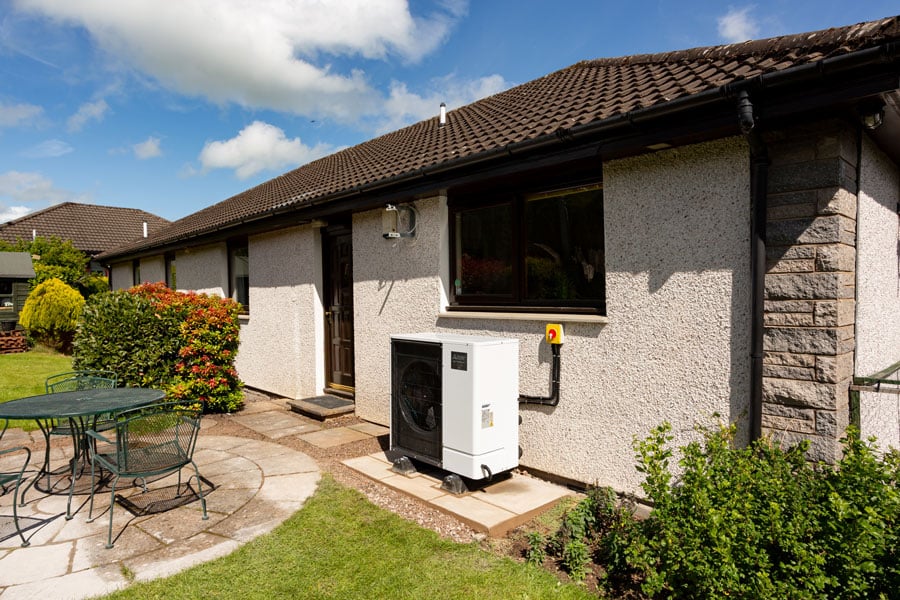Ofgem, the UK energy regulator, has released its annual report on the boiler upgrade scheme (BUS), which shows that 23,875 vouchers were redeemed from its launch until the end of March 2024.
Those grants added up to a total of £138.9 million paid towards the installation of low carbon heating systems. Of those paid grants, 71.6% were for the replacement of fossil fuelled heating systems, 10.7% were for the replacement of other heating system types like direct electric, and 18.0% were for low-carbon heating systems in eligible self-build properties.
As of the end of March 2024, there were 1,286 Microgeneration Certification Scheme (MCS) certified installation companies participating in the BUS. Almost all (96.2%) of the heating systems supported were air source heat pumps.
Ofgem and the BUS
The scheme was launched in May 2022 by the Department for Energy Security and Net Zero (DESNZ), with Ofgem as the scheme administrator, publishing monthly statistics on the scheme rollout.
In his foreword to the report, Neil Lawrence, director of delivery and schemes for Ofgem, said: “We take our responsibility to ensure that public funds are used effectively very seriously. Our careful monitoring of scheme applications ensures that scheme abuse and fraudulent activity is detected.”
He also commented on the scheme gaining recognition at the Civil Service’s 2024 ‘Operational Delivery Profession’ awards. The scheme received a gold award in recognition of its delivery with a 95% customer satisfaction rating.
Since the BUS launched, several significant announcements have been made. In March 2023, the scheme was extended to last until 2028. Then, in September it was agreed by the last government that the value of grants would be increased to £7,500, which came into effect in October that year.
According to the annual report, this funding led to 84% more applications being received to the end of the Scheme Year (1 April 2023 – 31 March 2024) when compared to the same period in the previous year.
Although BUS vouchers can be awarded for housing and small non-domestic buildings in England and Wales, 99.5% of installations were in domestic properties. Gas boilers made up the largest proportion (47.2%) of replaced systems, with oil boilers coming next.
Boiler upgrade legislation
In March this year, the Conservative government delayed the clean heat market mechanism until April 2025. The so-called “boiler tax” would see boiler manufacturers have to match or substitute 4% of their boiler sales with heat pumps or face a £3,000 fine for each missed installation.
After the launch of Labour’s flagship Great British Energy company at the end of July, prime minister Keir Starmer was asked what his plans were for heating. He said: “I’m not going to tell people what to do with their boilers. This is not about bearing down on individuals, imposing a disproportionate burden on them. I don’t think that’s the way that we take anybody through a transition.”
On the delayed boiler ban, Jess Ralston, head of energy at the Energy and Climate Intelligence Unit (ECIU), said: “The gas boiler industry has been running ‘campaigns of misinformation’, as one ex-minister put it and lobbied to delay policies like the clean heat market mechanism. We already manufacture heat pumps here in the UK, but with the US and EU leading on deploying heat pumps, it’s now a question of where the private investment goes and how quickly we can grow the supply chain in the UK.”
She said that gas boilers will increasingly run on imported energy, meaning a choice between boosting energy security through the installation of more heat pumps or importing more gas to run boilers.






